THE NEXT GENERATION OF BUSINESS LEADERS
WISCONSIN SCHOOL OF BUSINESS UNDERGRADUATE PROGRAM

WISCONSIN SCHOOL OF BUSINESS UNDERGRADUATE PROGRAM


ON THE PULSE OF INNOVATION
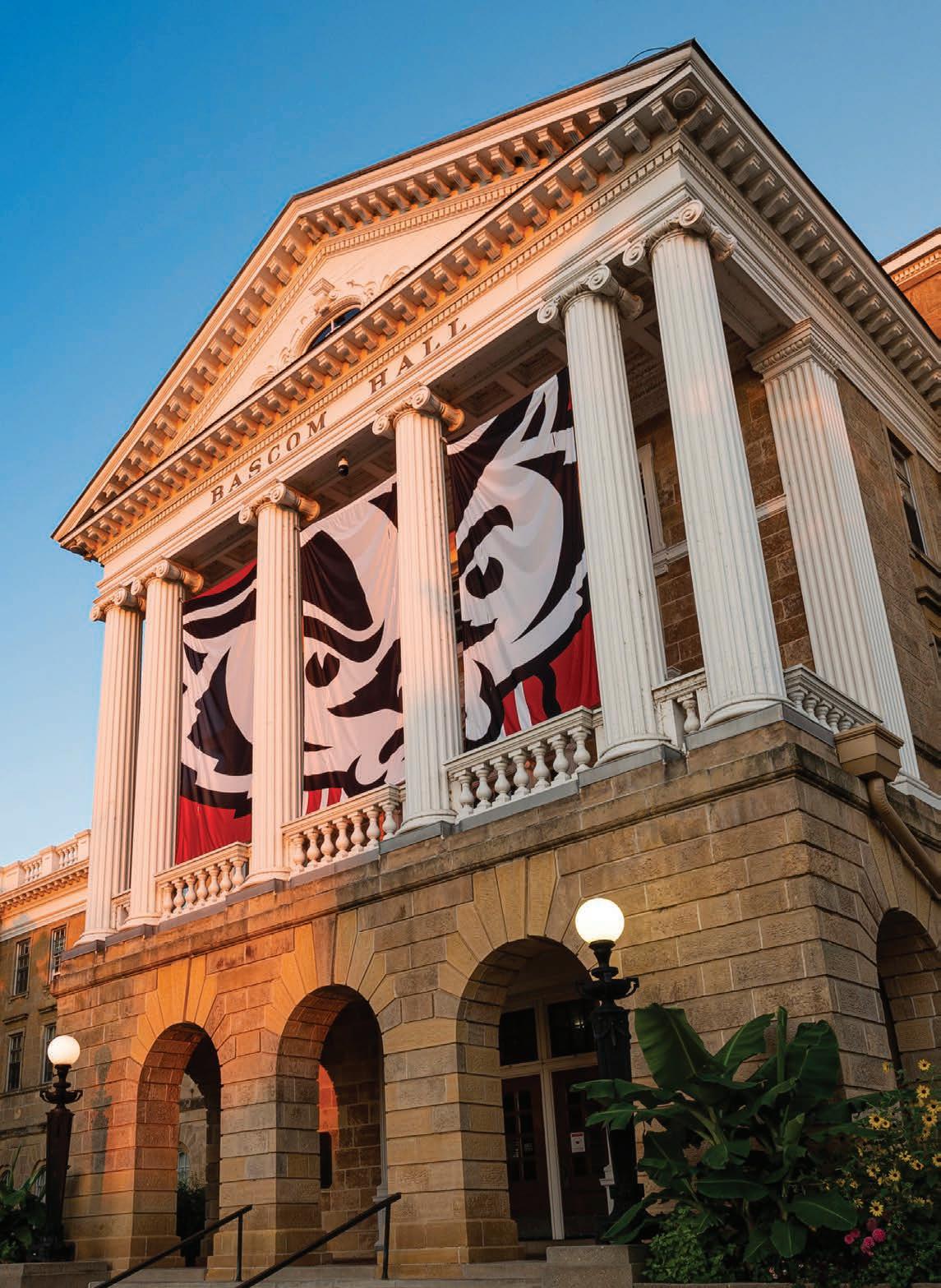
FOCUSED ON INCLUSIVITY
DEDICATED TO COLLABORATION
INTEGRATIVE CURRICULUM
CONNECTED TO TOP COMPANIES

As an integral part of the Wisconsin Business Badger experience, the Career Forward program offers a different type of careerreadiness. You’re paired with a supportive network of career coaches, academic advisors, and career pathway consultants to immerse yourself in the possibilities for your future.
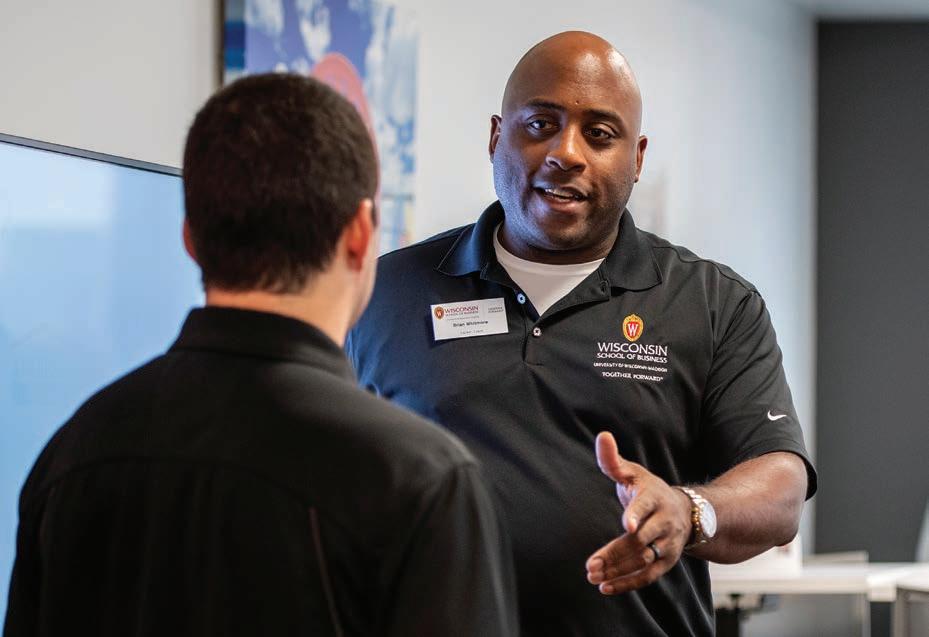
career pathways to explore 40+ staff and faculty make up our Career Engagement Team
10
25 interview rooms available for practice and recruiting
The Career Forward program is here to support you on your journey—because no two are the same.
Take time to reflect and identify your values, interests, and passions. One-on-one career coaching, events, and school resources help you explore the school’s business majors and identify career pathways you’re excited about.
Start discovering your career options now!
Take our quiz and explore how your interests match our majors.
Understand the skills and experiences you need to successfully pursue your career of choice. Participate in competitions and student organizations. WSB tools help you: with course sequencing and recruiting timelines; get access to leadership opportunities and experiential learning; connect with alumni and companies across the country.
After creating a tailored plan to be recruited, you’ll have face time with a diverse group of employers through career fairs, on-campus events, employer site visits, and networking opportunities. Career coaches support you through your application and interview process to help you put your best foot forward.
As you prepare to enter an internship or full-time job, Career Forward ensures you have the professional skills needed to stand out and succeed.
Track all your progress with an interactive app exclusive to Business Badgers as you hit key milestones.
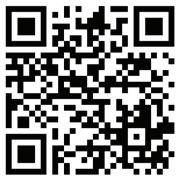
Year 1


Interns at The Ability Center Lands internship at Baird with help of Career Forward to explore investment career options
Year 2
Year 3
Works with the Career Engagement Team to discover consulting is the right career path for him
Interns at Spaulding Ridge
Visits consulting firm Spaulding Ridge as part of a Career Trek to Chicago
Year 4
With the help of career coaches and alumni and his involvement with student orgs, is hired for a full-time job at Deloitte
Leading hiring partners:
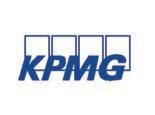


The Wisconsin School of Business partners with leading companies from across the nation and around the globe that recruit and hire our students, year after year, because they know Wisconsin graduates are experienced and prepared for success.
Almost all students complete at least one internship
$4,400
average monthly internship salary
500+ recruiting companies

95%
of graduates actively seeking employment secured a full-time position within six months of graduation

56% $68,480
average base salary received a signing bonus
Career and internship statistics are from the 2021 and 2022 classes. Numbers are estimated based on student response rate.



Wisconsin business grads take their skills to Fortune 500 corporations, major nonprofits, and startups all over the world. UW–Madison’s enthusiastic alumni help connect you to opportunities.
46,000+ Wisconsin School of Business alumni across the globe

1 in 4
students secures a position after graduation outside of the Midwest
Top cities for graduates: Chicago, New York, Milwaukee, Madison, Fox River Valley Area in Wisconsin, Minneapolis/St. Paul, Los Angeles, San Francisco, Denver, Washington, D.C., Austin, Boston, Dallas
Accountants report the financial activities of a business or an individual. In accounting, you work with all aspects of money management and help businesses make strategic decisions for financial well-being.
MAcc program: Students have the opportunity to add one year to their education and complete a master of accountancy degree.
Wisconsin undergraduate business students contribute hours of service to help taxpayers, including those in low-income positions, complete their returns.
Average starting salary: $64,526
HR professionals attract, motivate, develop, and retain employees for organizations. You learn about leadership, strategy, and decision-making involving people and products.
Wisconsin undergraduate business students specialize in organizational structure, entrepreneurship, or leadership employer development.
Average starting salary: $62,658
As a real estate professional, you can work in development and construction, real estate financing, brokerage, leasing, property management, appraising and assessment, or urban planning.
Students in the Wisconsin School of Business’ Real Estate Club take two national trips per year, usually in association with and sponsored by the Wisconsin Real Estate Alumni Association.
Average starting salary: $69,963
Named National Center of Actuarial Excellence
Actuaries apply problem-solving skills and knowledge of math, statistics, economics, and finance to create business solutions and predict results. You can work in insurance, manage risk, or lead operations.
Students in the Wisconsin undergraduate business program contribute to the TEL Project, developing technically enhanced educational aids to support learning in the classroom and to pass professional exams.
Average starting salary: $70,762
Marketers research consumer demand for products and services. You manage corporate brands, conduct marketing communications campaigns, and lead sales teams.
Professional Honorary Marketing Society students in the Wisconsin undergraduate business program provide marketing guidance and assistance to small businesses in Madison.
Average starting salary: $60,470
Risk and insurance experts protect organizations and their customers and support effective growth. You manage financial, legal, insurance, contractual, or product risks.
Wisconsin undergraduate business students recently collaborated with United Airlines to create a useful data management tool after the company introduced a new claims tracking system.
Average starting salary: $69,282
#24 in U.S.
Finance professionals manage organizations’ financial resources, weighing the risks and returns associated with financial products and institutions. You gain skills in analysis, trading, policy, financial markets, forecasting, and venture capital.
Wisconsin undergraduate business students participate in the Duff & Phelps YOUniversity Deal Challenge, winning the global deal-making case competition in several recent years.
Average starting salary: $74,334
In operations and technology management, you create and improve the processes that organizations follow to deliver quality goods and services to the right place at the right time, with the right balance of cost and speed.
Wisconsin undergraduate business students recently worked on the Hybrid Vehicle Team, developing and building innovative vehicles.
Average starting salary: $69,074
Professionals in information systems use technologies to analyze business problems and processes. You use these analyses to design and implement computer-based systems that support operations, decisionmaking, and planning.
Outside of the classroom, Wisconsin undergraduate business students use technologies to analyze real business problems and processes in order to design and implement computer-based information systems.
Average starting salary: $77,370
#18 in U.S.
Supply chain managers are essential to keep the global economy running. You strategize the flow of goods and services, source materials, and oversee manufacturing and delivery of products.
Wisconsin undergraduate business students recently traveled to Norway to explore the supply chain of the energy industry and its move toward more sustainable business practices.
Average starting salary: $65,974
From foreign language to sustainability to LGBTQ+ studies, UW–Madison offers over 70 certificates that you can add onto your business degree to show your specialization and area of interest.
Popular certificates have included Spanish for Business Students, Chinese Professional Communication, Digital Studies, Sports Communication, and Accounting.
Learn critical thinking and problem-solving skills needed in the consulting field. Pair with any major and be ready for a consulting career.
Explore the complexities of business on a global scale. Gain the cross-cultural knowledge needed for a role in a multinational company.
Our curriculum is designed with the changing world in mind. Select multiple majors, add certificates, and tailor your education to fit your goals.
Boost your career readiness, diversify your skills, and grow your salary potential for your first post-grad job.

Handle the complexities of commercial real estate transactions. Gain knowledge and make industry connections to pursue the real estate career path of your choice. Our applied learning opportunities provide hands-on experience working on real-world projects in the community. The program is delivered by the same faculty who have earned a #1 national ranking for the undergraduate program in real estate.

Earn a STEM-designated degree. Guide cross-functional business processes. Today’s global business environment requires integration of analytics tools, information systems, manufacturers, suppliers, inventory management, and distribution to meet customer demand. Gain in-demand skills in operations, marketing, analytics, and risk.
#13 graduate supply chain program in North America —Gartner, 2022
Learn to leverage data to solve business problems with this STEM-designated master’s program. Use cutting-edge tools to hone your analytical skills and seize opportunities in the fast-growing world of turning data into decisions. Learn analysis, data visualization, machine learning, experimental design, and optimization.
Gain theoretical knowledge, analytical skills, and real-world insights to launch your career in investment research and portfolio management. Connect with industry professionals and have the opportunity to manage over $20 million in equities and fixed income assets.
Become a certified public accountant. Our individualized internship program, grounding in professionalism and ethics, and active employer network position you to start the career of your choice— in industry, government, nonprofits, or public accounting. For those without an undergraduate accounting major.

Learn to be an innovative arts administrator, nonprofit executive, or social entrepreneur. Build on your creative skills and background to make a difference and build a career. Develop a portfolio of strategic abilities rooted in business practice and complete an applied learning placement or launch a start-up project as a part of the program.
Invest in your development, deepen your knowledge, and earn a degree that prepares you to thrive in business analytics. Part-time for two years, this program is 100% online and asynchronous so you can watch lectures and complete coursework whenever it’s most convenient for you.
Enhance your background in accounting and learn advanced technical, consulting, and analytical skills. Take courses tailored to your desired career path: accounting, assurance, and advisory (AAA) or tax. Customize your education by choosing courses across five emerging disciplines to give you deeper expertise and further boost your career success. For those with an undergraduate accounting major.
Explore the master’s programs at business.wisc.edu/graduate/masters
This introductory course helps you develop leadership skills, facilitates networking, and encourages personal reflection on future goals. It was created with feedback from students, alumni, employers, and faculty/staff in order to prepare students for internships, full-time jobs, leadership roles, and community engagement.
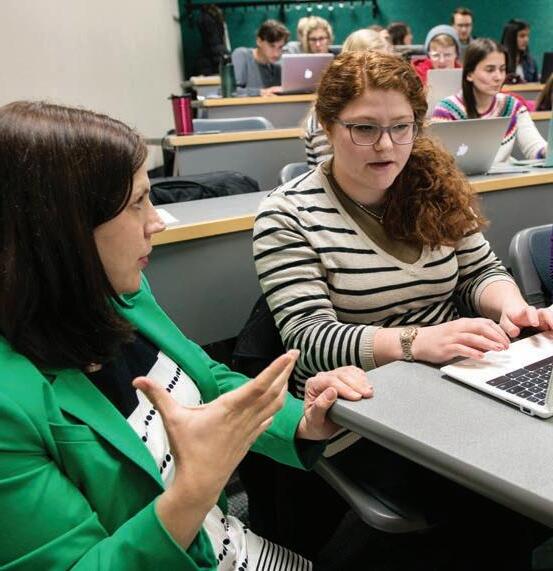
The WSB Business Plan Competition is a Shark Tank-style contest where students develop business ideas and pitch them to local entrepreneurs and investors. Winners receive up to $4,000 to launch their ventures as well as targeted entrepreneurship resources to more fully develop their business models.

At the Wisconsin School of Business, you get the latest, most relevant business education available. Faculty, staff, and alumni push the boundaries of business and challenge students to work with established leaders inside and outside of the classroom.
Wisconsin students have the opportunity to put their business skills to the test in an array of national case competitions. Showcase your ability and work with a team of Business Badgers to solve real-world challenges, and come up with innovative solutions. WSB participates in several competitions designed for first-year students.
Every year, a group of senior finance majors get the opportunity to join the School of Business’ MBA finance leaders for a career-focused program that prepares them for analyst roles in the finance industry. Students complete a team-based project and are mentored by industry experts and alumni.


Social platforms have a profound impact on the way we interact, build relationships, and do business. Marketing managers and digital entrepreneurs need a sound understanding of how they can leverage social media to create impactful and memorable content that drives engagement for their brand and builds a strong brand image. WSB’s social media marketing course combines a research-oriented and framework-driven approach with hands-on projects that prepare students for roles in marketing and online brand management.
Cynthia Chu (BBA ’99) is chief financial and growth officer at Audible, the market leader for premium audio storytelling. By riding technology’s changes over the course of her career, Cynthia has been able to continually pursue the goal that sparked her initial interest in business: problem-solving on a large scale in a way that impacts consumers’ lives.

Cynthia’s path continues to take her to unexpected places. She oversees Audible’s corporate strategy and development team, the business development/strategic partnership team, the fraud and business assurance team, and the marketing team.

You’re never going to be ready for your next thing. It goes back to problem-solving and being analytical. I break the problem down into pieces that I can solve. That’s a skill set that to this day helps me.
Build leadership skills, earn digital badges, and demonstrate to employers you are ready to take on the nuanced challenges of today’s fast-paced business world.

Attend workshops, conferences, case competitions, and service days, and apply what you learn. Many badge requirements also help you get on track for completing UW–Madison’s leadership certificate.
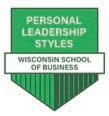
Explore your leadership, strengths, and interpersonal styles while enhancing your ability to recognize and adapt to different styles of others. It builds off the introduction to leadership theories from the Personal and Professional Foundations of Business (PPFB) course.

Develop a deeper understanding of group dynamics and focus on collaboration and supporting the learning and development of others. Learn to work well within a team structure, negotiate and manage conflict, and build tools to motivate others.
Gain an intermediate understanding of social justice concepts and the role that diversity and identity play in the enhancement of teams and businesses.
Learn to identify opportunities for positive change and develop strategies for implementation. Practice engaging stakeholders in the change process.
Participate in a three-day immersive leadership retreat at Lambeau Field and work on leadership skills that will prepare you for a career at a major organization. Hear from various leaders within the Packers, participate in small group discussions, and go behind the scenes at Lambeau.
Learn more at business.wisc.edu/undergraduate/leadership/badges

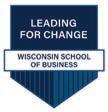

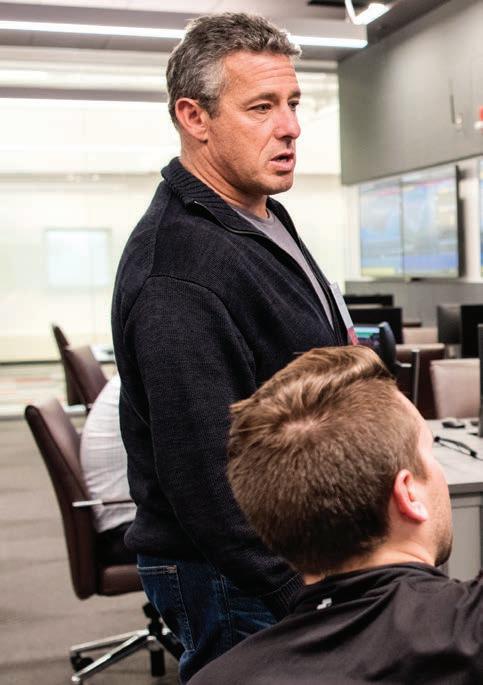
Situated in the heart of the bustling UW–Madison campus, Grainger Hall is the perfect home for your exciting new journey as a business scholar, taking your knowledge and career-readiness to great heights.

The cooperative provides academic support and tutoring resources for students in core business courses. These include accounting, economics, finance, psychology, calculus, operations and technology management, and business analytics coursework. The Study Cooperative provides small group tutoring, study group coordination, and individual study space.
One of the first in-house leadership centers in a U.S. business school, the Accenture Leadership Center helps students develop and practice leadership skills through workshops, speaker series, classes, and case competitions.
The Learning Commons is a library and study space that integrates three floors in Grainger Hall to create a vibrant atmosphere where students, faculty, staff, alumni, and industry leaders learn from and engage with one another. It includes a Finance and Analytics Lab, collaborative learning classrooms, group work space, individual study space, and tutoring support services.
10

Our coaches serve as advocates and connection points for students, and they can partner with you to work collaboratively with instructors.
Our advisors work one-on-one with you to help you explore your interests, and work to prioritize customizable experiences like study abroad, internships, and balancing double-majors.
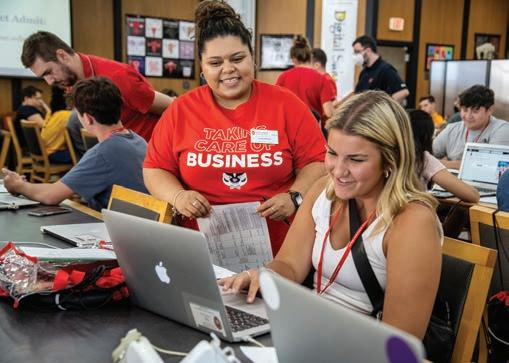
In partnership with Dr. Julie Phillips, the mental health provider embedded within WSB, the business school offers student support services and individual and group therapy sessions. Dr. Julie offers drop-in consultations to WSB students and will engage in outreach services, programming, consultations, and trainings.
9,500+ one-on-one appointments are conducted each year
Experience an inclusive culture where each individual is valued and differences are celebrated. We support diversity in our student body, including but not limited to race, ethnicity, socioeconomic status, gender identity, sexual orientation, and intellectual differences.

The School of Business’ Multicultural Center in Grainger Hall hosts events and provides resources to strengthen and sustain an inclusive campus where all students, particularly students of color and other historically underrepresented students, can realize an authentic Wisconsin experience. With a strong focus on social justice, the center gives students an opportunity to learn about and engage with current issues and participate in workshops and community building.
Join a Business-Focused Living Community
UW–Madison offers two business-specific living communities. Business Connect in Ogg Hall is home to 120 first-year students directly admitted to the Wisconsin School of Business. Students participate in WSB programming and mentoring, develop study groups, and work on new business ideas and concepts. Startup is an entrepreneurship-focused community located in Sellery Hall. Each year, 64 students from a variety of majors live and learn together. Students work to bring their business ideas to life, network with peers, and compete for funding opportunities.

These informal groups help students with shared identities connect with each other to talk about their experiences, and/or focus on working toward a particular mission or goal together. Current groups include: WSB Black Undergraduate Affinity Group, WSB Latine Undergraduate Affinity Group, WSB LGBTQ+ Undergraduate Affinity Group, WSB Asian, Pacific Islander, Desi-American (APIDA) Undergraduate Affinity Group, and WSB First-Generation Affinity Group. More groups are in development.

Wisconsin undergraduate business students come from around the country and the globe to build a supportive network, learn from different perspectives, and strive to make an impact on the business world. Providing an inclusive environment is central to the Wisconsin School of Business’ efforts to educate the next generation of business leaders.
3,662
of Fall 2021 first-year students returned to WSB for their second year in 2022

45% 49% 15% 5%
96% female students students of color* first-generation students international students
48 states, Washington, D.C., and 65 countries represented at WSB
1,000 UW–Madison student orgs
Find the perfect student organization for you at win.wisc.edu/organizations.
50+ business student orgs
*A student of color is defined as an individual who identifies as one or more of the following racial and ethnic groups: American Indian or Alaskan Native, Asian or Pacific Islander, African-American/Black, Hispanic/Chicano/Latino(a)
The Wisconsin School of Business offers business-focused study abroad programs in 15+ different countries. The programs are hosted by highly regarded business schools around the world. About 40 percent of business students study abroad.
35+
Dublin
Students also have the opportunity to participate in a nonbusiness-focused study abroad program through one of UW–Madison’s 225+ additional programs on six continents.

Studying abroad is a great way to customize your college experience, meet people from around the world, and explore your interests.

• Develop a global perspective that changes your worldview
• E xperience international business and prepare for a world economy
• Challenge yourself and develop confidence in your abilities
Read blogs from our Wisconsin undergraduate business students abroad at business.wisc.edu/ undergraduate/study-abroad/student-experiences
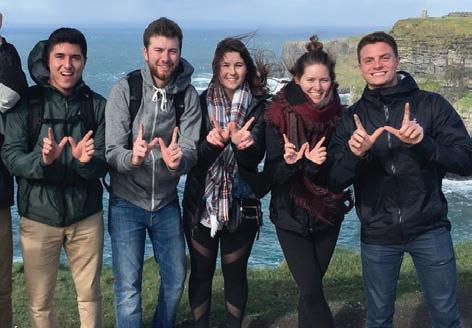
My study abroad experience taught me the significance of adaptability and resilience in navigating unfamiliar situations and environments. I learned to embrace change and approach challenges with a positive mindset. This semester enhanced my intercultural communication skills and strengthened my ability to collaborate with individuals. It provided me with a greater understanding of global issues, which will hopefully increase my career opportunities and my ability to contribute meaningfully to an increasingly interconnected world.

public institution for semester study abroad participation
—Open Doors Report, 2021
 Cole Remy (BBA ’24)
Cole Remy studied at one of Europe’s top universities.
Cole Remy (BBA ’24)
Cole Remy studied at one of Europe’s top universities.
BBA

#1 #2
Apply to the University of Wisconsin–Madison at apply.wisconsin.edu or commonapp.org
Indicate business or a specific Wisconsin undergraduate business major to be considered for direct admission
All students who apply to UW–Madison and indicate business as their first choice of major are automatically considered for direct admission.
Approximately one third of the program’s students are admitted after at least one year at UW–Madison or another institution. Students can apply a maximum of one time during the spring semester after meeting the prerequisite requirements.
Schedule a meeting with a Wisconsin undergraduate business program admissions counselor to discuss our pre-business path and ways to prepare for admission. Visit business.wisc.edu/undergraduate/events for more info.
Every Wisconsin undergraduate business student must take four prerequisite courses before beginning upper-level business courses—regardless of how you are admitted. You may transfer AP or college credits for these courses before you arrive at UW–Madison. However, once you start at UW–Madison, any remaining prerequisite courses must be taken on campus.
1. Communications Part A
2. Quantitative Reasoning Part A (QR-A)
3. Microeconomics
4. WSB Human Behavior
(one course from select options)
Learn more about the prerequisites for Wisconsin undergraduate business students by visiting business.wisc.edu/undergraduate/admissions/pre-business-policies/ or by scanning the QR code.
*The majority of Wisconsin undergraduate business students, regardless of how they are admitted, begin Business Fundamentals during their second year. Direct admit students may have the opportunity to begin Business Fundamentals during their first year depending on course availability.
*Undergraduate business school tuition adds an additional $2,000 ($2,600 for Minnesota reciprocity).
The Wisconsin School of Business provides over $1 million in scholarship support to admitted and enrolled Wisconsin undergraduate business students each year. There is a wide variety of financial aid and scholarship options available to incoming UW–Madison and/or Wisconsin School of Business students. To be considered for most awards, completion of the FAFSA is required.
Wisconsin football player. U.S. Marine. NGO founder. Author and entrepreneur.
Jake’s titles jump off the page, but his path to making a difference was not a neatly defined 10-step plan. It was hard work, Midwestern grit, and enduring confidence that led Jake to who he is today—a startup CEO with $15 million of seed funding and an idea that could shake up the world.
Jake’s company, Groundswell, is on a mission to democratize philanthropy. Groundswell gives everyone the ability to create their own personal foundation via an app.


I’m creating a bold model for charitable giving so others can have an everlasting impact on the world. I’m here to make a difference.
#3
Towns and Cities in U.S.
—Travel and Leisure, 2022
Camp Randall Stadium, Kohl Center, UW Field House, LaBahn Arena
Homes of the Wisconsin Badgers sports teams—many of which consistently top national rankings and compete for Big Ten championships.
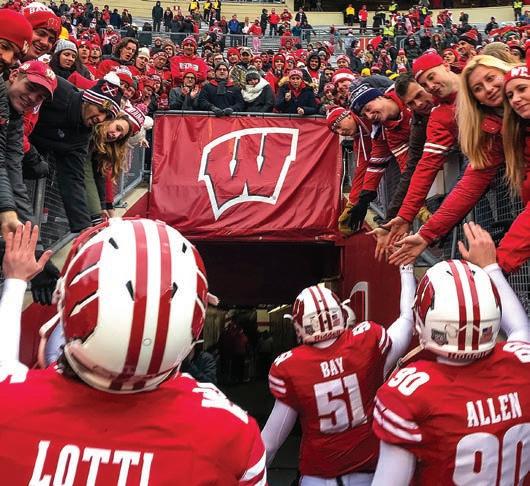
Unmatched biking, hiking, and sports. World-class art, music, and theater.
Madison is consistently rated one of America’s favorite places to live or go to school. Take advantage of urban amenities and enjoy small-town friendliness. Immerse yourself in a vibrant capital city, engage with a growing startup community, and benefit from a relaxed, nature-filled environment.
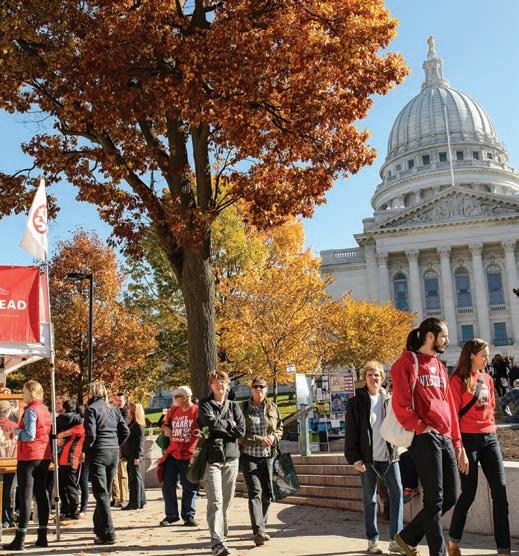
Visit
State Capitol
The beautiful Wisconsin state Capitol building rests in the center of the city, flanked by restaurants, shopping, and museums. The Capitol Square hosts a wildly popular farmers market.
State Street
Madison’s legendary pedestrian-only street connects campus and the Capitol Square and is dotted with restaurants, shops, and concert venues.
#1
best place to live
—Livability.com, 2022
Madison has five gorgeous lakes, with campus bordering Lake Mendota and within walking distance of Lake Monona. Students sail, paddleboard, hang out at the scenic Memorial Union Terrace, and hike or bike along the shores. Make sure to check out the picturesque Picnic Point.

Madison is a major hub for the arts, with several music, theater, and comedy venues close to campus, a stunning contemporary art museum, and an array of outdoor festivals.


Just blocks from Grainger Hall, the Memorial Union is UW–Madison’s cultural hub and iconic waterfront hangout. Overlooking Lake Mendota, the Memorial Union Terrace has water sports, presents a regular lineup of music and cinema, and showcases Alumni Park. Inside, students participate in lectures and performances featuring the world’s most current and prominent cultural voices.
#10
in America’s New Top Tech Hubs
—Bloomberg Businessweek, 2019
